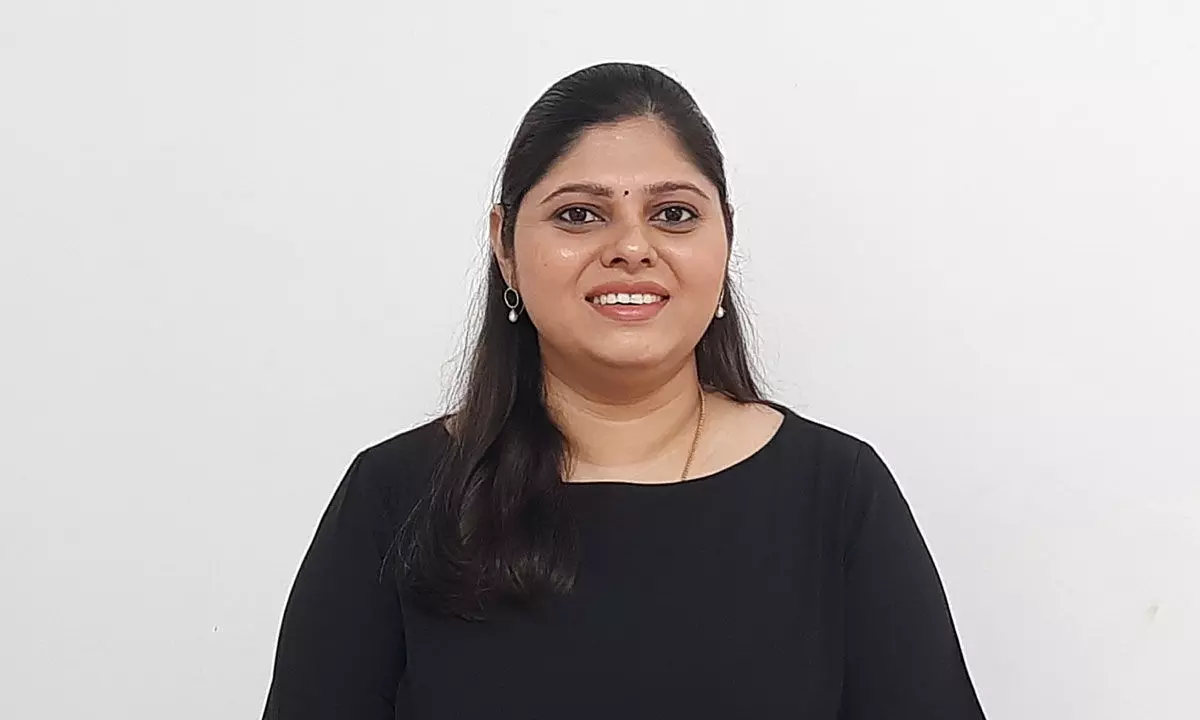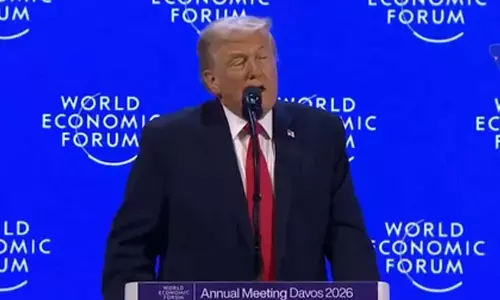Startoon Labs building high-quality indigenous medical devices

Mythreyi Kondapi Co-founder and CTO
With its innovative device Pheezee, the startup aims to revolutionise the way patient assessments are done in physiotherapy and rehabilitation
Startoon Labs Pvt Ltd is a Hyderabad-based medical devices company founded by a husband-and-wife duo Suresh Susurla and Mythreyi Kondapi who are alumni of IIT-Madras, IIM-Calcutta and IIM-Ahmedabad. It was incubated by WeHub, accelerated by T-Hub, funded by IKP Knowledge Park and supported by Biotechnology Industry Research Assistance Council (BIRAC). Startoon Labs has gained recognition at various events for its flagship product Pheezee both nationally and internationally. In an exclusive interview, its Co-founder and CTO Mythreyi Kondapi tells The Hans India about their vision of building world class hardware products and solutions in India for the world in the field of healthcare
What is the education background of the co-founders? How did you start a medical devices company?
We both are electronics engineers. I have a keen interest in combining the medical stuff with engineering. Right from my B Tech to my previous job, I was doing some projects related to the medical field – either wearables or consumer electronics – that had a human touch. We chose to continue in the medical devices field as there is a huge gap in this segment.
A majority of the electronic products in India are imported from other countries, mostly China. We don't have self sustainability in medical devices. Affordability and accessibility of advanced medical technology in the country is still limited to major corporate hospitals only. The key solution to this problem is to design, develop and manufacture indigenous medical devices.
I and Suresh were planning to make a product truly in India. That's how Startoon Labs was founded in 2017. It became a part of the first cohort of WeHub, three years back. We don't want to come up with a lower-version of something available in other countries. We design and manufacture indigenous hardware products that are relevant to the world as well.
Several electronic firms in India import the components from China and assemble here to claim it as a 'Made-in-India' product. Are you doing the same or really manufacturing indigenously here?
We both are researchers and scientists, who want to build high-quality electronic devices in India and showcase our capabilities across the world. We have the entire research and development (R&D) and production activities taking place in India. At least 90 per cent of the manufacturing work is happening in Hyderabad itself.
However, the main electronic components like resistors, capacitors, integrated circuits (ICs) and VLSI chips are procured from China, Taiwan and other countries as they are not available in India at all. After that, nothing is made outside the country. The assembling, testing and packaging are done in-house at our facility only.
How many products do you manufacture? How effective they are in the healthcare sector? What is the price range?
We are constantly innovating to solve problems in the healthcare sector. At present, we have only one innovative product – first-of-its-kind physiotherapy assessment device – Pheezee. It is a stethoscope of every physiotherapist and aims to revolutionise the way patient assessments are currently done in a physiotherapy and rehabilitation setting.
In physiotherapy across the world, there is no mechanism to evaluate how a patient is recovering. Pheezee is a patented wearable prognostic device which can monitor and track the recovery of patients undergoing physiotherapy and rehabilitation, post orthopedic and neurological ailments.
Pheezee monitors the range of motion of all the major joints with a resolution of one degree. It helps in post-operative care by guiding through the recovery process, thereby reaching the goals set by the doctor. The patient's confidence in treatment increases once they see their recovery in an objective way.
The monitoring and assessment device generates quantified clinical reports that also help in creating a common standardised platform for communication between the physician, physiotherapist and the patient. It provides scientific evidence based treatment and recovery. It can be used by a therapist both in a clinical and a home setting.
Pheezee evaluates the patient's condition based on the movement and the muscle response to the treatment. We collect data on these parameters to create AI-based analytics and generate a detailed report with graphs and numbers about the recovery. It is currently being used in more than 50 hospitals across four States. We are trying to expand in 10 States over the next six months.
The IoT-enabled wearable device costs Rs 59,000 and we charge for reports additionally as we keep the database. Along with a tablet phone and bluetooth printer, the kit comes at Rs 79,000. Mostly, hospitals and rehabilitation centres buy this device. For patients, it is provided on lease at a charge of around Rs 30,000 included in the physiotherapy package of 3-6 months.
What is the market size for this kind of product in India? What is the target ahead?
Pain is everywhere, but we often take some pills and neglect that. There are only one lakh physiotherapists in India. It is ideally a smaller number to treat the wide range of pains that people are going through. Our target is to explore various use cases. Right now, we are working with post-surgery patients. We want to start venturing into pain awareness programmes as well.
We are going for international certification as it is a globally relevant product. With available funds, we could so far get only Indian patents. Global patent comes with a cost as everything is expensive in the medical industry. A startup like ours cannot afford that. We may go for it when we improve the revenues or receive any grant.
We have invested our initial funds in the R&D and manufacturing of the product. At present, we are planning to raise Rs 3 crore in a bridge round to expand our sales and marketing to scale our domestic business. We are also looking for tie-ups with corporate hospitals and MNCs for conducting master health checkups and pain management camps.
With the growing support by both the State and Central governments to the Indian medtech startups in the form of seed funds and incubations, the shift has begun towards indigenous R&D and manufacturing of devices. India will become the R&D, manufacturing and export hub of affordable and high-quality medical devices to the world in a decade's time.
(This is the sixth interview of WTC Shamshabad- WE Hub Startup Series, a collaborative effort of World Trade Center – Shamshabad and WE Hub, the incubator for women-led startups, to showcase startups founded by women entrepreneurs)














